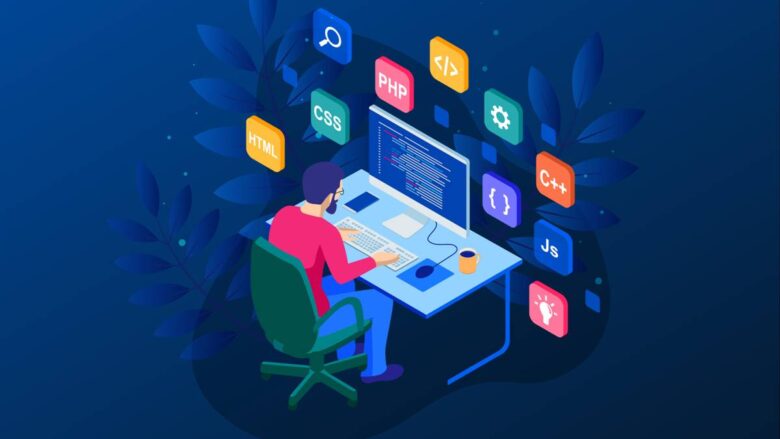In the ever-evolving world of technology, programming languages play a vital role in shaping the landscape of software development. As we step into 2023, the demand for skilled programmers is at an all-time high. Whether you are a seasoned developer or a beginner aspiring to enter the world of coding, choosing the right programming language is crucial for career growth and staying relevant in the industry. This article will provide an insightful overview of the top 10 programming languages you should consider learning in 2023.
1. Python: Versatility at Its Best
Python continues to dominate the programming world with its remarkable versatility and ease of use. It is an excellent language for beginners due to its straightforward syntax and readability. Python’s applications range from web development to data analysis, artificial intelligence, and automation. Major tech giants like Google, Instagram, and Spotify rely on Python for their projects, making it a safe bet for aspiring programmers.
2. JavaScript: The Language of the Web

JavaScript is the cornerstone of web development. With the rise of single-page applications and front-end frameworks like React and Angular, JavaScript’s importance has skyrocketed. Learning JavaScript allows you to create dynamic, interactive, and responsive web applications. As browsers evolve, so does JavaScript, making it an essential language for any developer looking to build a career in web development.
3. Java: A Time-Tested Classic
Java has stood the test of time and remains one of the most popular programming languages. Known for its “write once, run anywhere” capability, Java is widely used for building cross-platform applications, Android apps, and enterprise-level systems. Many large-scale organizations prefer Java for its robustness and security features.
4. TypeScript: Adding Safety to JavaScript
TypeScript, a superset of JavaScript, brings static typing to the language, offering enhanced code quality and error detection. It addresses the challenges of large-scale JavaScript projects by providing a more structured approach. TypeScript is gaining traction rapidly, and developers with knowledge of JavaScript can easily transition to this language.
5. Go (Golang): Efficiency and Simplicity
Go, also known as Golang, has gained popularity for its efficiency, simplicity, and concurrent capabilities. Developed by Google, Go is an excellent language for building scalable systems and web servers. Its straightforward syntax and built-in tools make it an attractive choice for projects where performance is crucial.
6. Rust: Empowering Systems Programming
Rust has earned a reputation for its focus on safety and low-level systems programming. With its powerful memory safety guarantees, Rust is ideal for building performance-critical applications and operating systems. It has become the language of choice for projects that prioritize security and reliability.
7. Swift: Powering the iOS Ecosystem
If you’re interested in iOS app development, Swift is a must-learn language. Developed by Apple, Swift offers a user-friendly and expressive syntax that simplifies the process of creating feature-rich iOS and macOS applications. As Swift continues to evolve, it solidifies its position as the future of Apple’s software development.
8. Kotlin: An Excellent Choice for Android Development
Kotlin, an officially supported language for Android development, has gained immense popularity among developers. With its modern syntax and seamless integration with Java, Kotlin enables you to build robust and efficient Android applications. Many app development companies have transitioned to Kotlin due to its numerous advantages over Java.
9. C#: Building Applications for Microsoft Ecosystem
C# (C Sharp) is a powerful language primarily used for developing Windows applications, games, and enterprise software. With the growth of the .NET ecosystem, C# has gained significant momentum. If you are interested in software development within the Microsoft environment, learning C# is a valuable investment.
10. R: Dominating Data Science and Analytics
R remains the go-to language for data scientists and statisticians. It boasts a vast array of libraries and packages for data manipulation, visualization, and statistical analysis. R’s prominence in the field of data science makes it an essential language to learn for anyone seeking a career in this domain.
Conclusion
As technology advances, the demand for skilled programmers continues to surge. The programming languages mentioned in this article are among the top choices for aspiring developers in 2023. Each language has its unique strengths and applications, catering to different areas of the tech industry. Whether you aim to become a web developer, mobile app developer, data scientist, or systems programmer, learning these languages will undoubtedly boost your career prospects.
FAQs
Answer: For beginners, Python is an excellent choice due to its simplicity and readability.
Answer: While JavaScript is primarily used for web development, it can also be utilized for server-side development (Node.js) and mobile app development (React Native).
Answer: Rust’s focus on safety and memory management makes it a compelling choice for building secure and high-performance systems.
Answer: Yes, Kotlin is fully interoperable with Java, allowing developers to seamlessly transition from one language to the other.
Answer: R is one of the leading languages for data science and analytics due to its extensive collection of libraries tailored for statistical analysis and data manipulation. However, Python is also a popular alternative with a strong presence in the data science community.

Leave a Reply